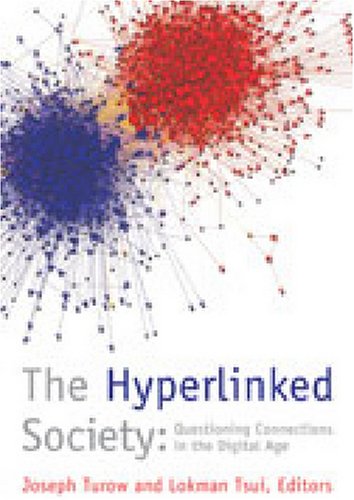
The Hyperlinked Society: Questioning Connections in the Digital Age
by Joseph Turow, Lokman Tsui
Publisher: University of Michigan Press 2008
ISBN/ASIN: 0472050435
ISBN-13: 9780472050437
Number of pages: 328
Description:
The Hyperlinked Society addresses a provocative series of questions about the ways in which hyperlinks organize behavior online. This path-breaking collection of essays will be valuable to anyone interested in the now taken-for-granted connections that structure communication, commerce, and civic discourse in the world of digital media.
Download or read it online for free here:
Read online
(online reading)
Similar books
 Deep Mapping the Media City
Deep Mapping the Media Cityby Shannon Mattern - University of Minnesota
Using techniques like excavation and mapping to discover the modern city's roots in time, Shannon Mattern advocates for urban media archaeology, a multisensory approach to investigating the material history of networked cities.
(4610 views)
 Mobile Screens: The Visual Regime of Navigation
Mobile Screens: The Visual Regime of Navigationby Nanna Verhoeff - Amsterdam University Press
This book is a must for anybody interested in visual culture and media theory. It offers a theoretical account of the central dimension of our contemporary existence -- interfacing and navigating data and physical world through a variety of screens.
(4376 views)
 Mediactive
Mediactiveby Dan Gillmor - Lulu.com
We're in an age of information overload, and too much of what we watch, hear and read is mistaken, deceitful or even dangerous. Yet you and I can take control and make media serve us by being active consumers and participants. Here's how.
(11908 views)
 Audiovisions : Cinema and Television as Entr'actes in History
Audiovisions : Cinema and Television as Entr'actes in Historyby Siegfried Zielinski - Amsterdam University Press
The book reconstructs the genesis of cinema and television as historically relative cultural forms, focussing on the interaction between the apparatus and its uses. It is also a plea for 'staying power' in studies of cultural technology of film.
(6280 views)